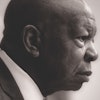With the U.S. Supreme Court expected to deliver a ruling that outlaws affirmative action as early as next week, the 35th National Conference on Race and Ethnicity in Higher Education (NCORE), which has drawn over 5,000 administrators, scholars, and students to New Orleans, featured a session Wednesday on how colleges can respond.
The well-attended presentation, titled “Racial Justice on Campus in a Post-Affirmative Action World: What Colleges Can (and Must) Do Now,” was delivered by Tim Wise, the activist and writer behind White Like Me: Reflections on Race from a Privileged Son and Dispatches from the Race War. During his presentation, Wise painted a grim picture.
 Author and activist Tim Wise
Author and activist Tim Wise
Wise also criticized top 10%-style plans, in which the top students at every high school in an area are automatically awarded spots in colleges as a means of achieving diversity. This diversity, said Wise, is because of inequalities and segregation in the K-12 system, and the plans put equity at the K-12 level and in higher education in tension. In states where they have been tried, such as Texas, they also have not resulted in diversity comparable to that of affirmative action over time, Wise argued. He had a similar criticisms of holistic review, reducing reliance on early admissions, and expanding the number of transfer students admitted from community colleges.
“Nothing works like actual affirmative action at boosting diversity and inclusion,” Wise said.
But Wise believes that the debate over affirmative action hides a deeper problem. After all, affirmative action only affects a group of around 165 elite colleges and universities that only 15% of Americans attend. What really needs to happen, he noted, is a re-thinking of what he described as an elitist, capitalistic, hierarchical approach to higher education, where some schools are valued more than others.
“Why do we buy into the mentality that it’s more important to get a statistical handful of Black and brown students into UC-Berkeley or UCLA, as opposed to ensuring that UC-Santa Barbara and UC-Santa Cruz and all of the other state institutions are just as excellent as they can be?” he said.




















